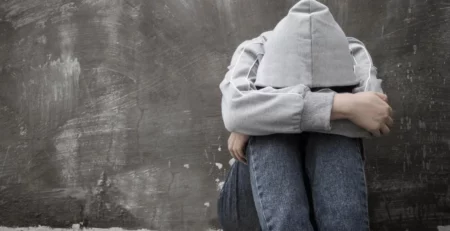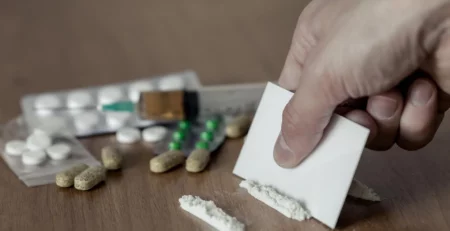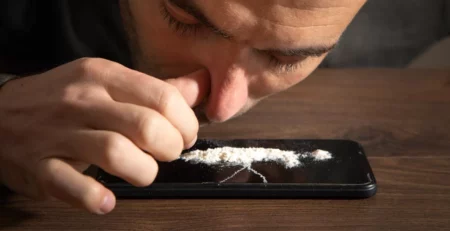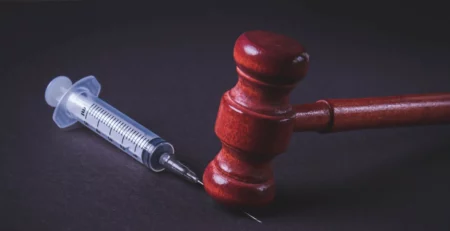PTSD is Ruining My Relationship | Getting Support
Tips for Managing PTSD and Relationships Successfully
I don’t like talking about what happened on the worst day of my life. After what happened, I had a hard time staying connected to reality. My days all blended together and I felt numb to the world around me.
At the end of the day, when I’d usually sit and talk with my partner while we enjoyed an episode of whatever show we were currently watching, I found myself silent. He’d try to ask me things and I’d give short, one- or two-word answers before zoning out again. After weeks of this he snapped, “Do you even want to be with me anymore?!”
In all my numbness, I had neglected the person that meant the most to me. It became clear to me: PTSD is ruining my relationship, and I knew I needed to get support to change that.
The reality is post traumatic stress disorder (PTSD) causes trust, communication, and problem-solving issues, all things that affect relationships. But, healing is possible. With these strategies and resources like Icarus Behavioral Health, you can heal your relationship and watch the rest of your life follow. You don’t have to suffer in silence.
How Posttraumatic Stress Disorder Affects Your Relationships

Any event that causes significant physical, emotional, or mental distress has the potential to cause post traumatic stress disorder (PTSD). For example, you can develop PTSD after experiencing a car accident, domestic violence, harassment or sexual assault, physical violence, childhood neglect or abuse, or any other traumatic event.
Often, trauma like this severely impacts daily life. You might feel numb or on edge. Irritation can cause you to snap at loved ones while disconnection can make you isolate and avoid closeness.
In cases where trauma lasts for weeks or months, it’s possible to develop complex PTSD. For example, being a prisoner, experiencing domestic violence, or being a victim of child abuse. Individuals with complex PTSD have additional struggles that complicate their relationships with the people they love.
Let’s take a closer look at how PTSD and complex PTSD affect intimate relationships.
Trust Issues
Many trauma survivors find it hard to trust others after a traumatic event. It can re-shape the way that you view the world and give you a negative outlook. This can damage close relationships and make it hard to form new connections.
In people with complex PTSD, difficulties trusting can be severe. There’s also a risk of entering toxic relationships, either because it “isn’t that bad” or because you don’t feel that you deserve a loving, supportive partner. This is called revictimization.
Confidential Trauma and PTSD Assessment at Icarus
Negative Self-Image
People in trauma recovery often find PTSD has also affected the way they view themselves. It might be hard to feel comfortable in your skin. What happened can cause negative emotions like shame or guilt. For example, you might feel ashamed for not fighting back harder or guilty if you were injured less than another party.
People with complex PTSD also frequently deal with a negative self-image. They may feel like what happened makes them unworthy of being loved or damaged, something common with complex PTSD symptoms. Survivors may also be sensitive to negative feedback or feel that they are a failure.
Communication Problems
Communication is at the foundation of any good relationship. Unfortunately, following a traumatic event, it’s hard to make sense of our feelings, much less share those feelings with someone else.
When you cannot communicate properly, conflicts arise from misunderstandings and decrease relationship functioning. Emotional withdrawal and disassociation further strain the relationship, leaving your partner feeling that you do not want to be close. There can be issues with communicating needs and boundaries as well.
Triggers
Triggers can be things of the physical world, like sights, sounds, or smells, or they can be something like experiencing an emotion similar to what you felt that day. Triggers bring on PTSD symptoms like avoidance of certain places, people, or things, flashbacks, or anxiety.
Complex PTSD triggers are often deep and rooted in emotions. For example, someone with complex PTSD might find it hard to accept any kind of feedback or perceived criticism if their parent was constantly belittling them. Even when feedback comes from a good place, it can be perceived as an attack.
Ineffective Problem Solving

Following certain types of traumatic experiences, conflict can be a trigger. It’s possible to make small problems much bigger than they are and when focusing on the problem instead of the solution, it’s hard to maintain relationships.
People dealing with traumatic symptoms also commonly put their needs on the back burner, instead taking strides to avoid conflict at all. This can lead to difficulties in creating sustainable relationships or meeting your needs.
Emotional Dysregulation
Negative emotions like guilt, shame, panic, and anger often overwhelm people who are struggling with posttraumatic stress disorder (PTSD). These can come on rapidly, seemingly without warning.
After going through something traumatic, you might also feel restless or on edge all the time. This can cause you to become overstimulated or snap at your family and friends.
In people struggling with complex PTSD, emotional dysregulation can be severe. You may have strong emotional impulses or disturbances that are especially challenging to cope with, for example, sudden anger, fear, or sadness that isn’t emotionally appropriate for the situation.
Get Accredited Treatment Programs at Icarus – Call Now!
Isolation and Relationship Avoidance
It’s not uncommon to struggle with physical or emotional intimacy following a traumatic event. Many people feel numb or detached from the world around them. You might live in your head instead of the physical world or experience hypervigilance, making it hard to be intimate with anyone.
Unfortunately, isolating does not improve PTSD symptoms and it is also damaging to relationships. It creates a sense of disconnect between yourself and your partner. You may subconsciously feel that you don’t deserve a good relationship or that you are too damaged to love.
Strategies for Trauma Survivors to Have Better Relationships

People dealing with symptoms of PTSD and complex PTSD often struggle with their mental health, relationships, and daily life. As symptoms persist, it makes it hard to feel like things will ever improve.
Fortunately, if you seek professional help, you can begin unpacking trauma and the emotions that come along with it. You can also start to heal intimate relationships, making it possible to develop social support from friends and family members that is important when overcoming mental health problems.
Therapies for Unresolved Trauma
Going through something traumatic leaves a wound that isn’t always visible to the human eye. It takes time to heal but if you do not process the trauma, the healing process can be messy and go on for what seems like forever. Fortunately, with the guidance of a mental health professional, you can start to identify PTSD and complex PTSD triggers, learn how to overcome them, process your emotions, and heal your romantic relationship.
PTSD treatment should provide a safe, judgment-free place where you can share what happened and your thoughts about it. There is no wrong way to feel, whether you are experiencing shame, guilt, depression, anger, or something else. Some commonly used treatment options for PTSD and complex PTSD include:
- Eye Movement Desensitization and Reprocessing
- Trauma-Focused Cognitive Behavioral Therapy
- Dialectical Behavior Therapy
- Cognitive Processing Therapy
- Narrative Therapy
- Prolonged Exposure Therapy
- Body-Centered Therapies
The client-therapist relationship is especially important for trauma survivors who may have difficulty forming bonds of trust that encourage openness in therapy. At Icarus, we use a client-based approach fit to the context of your trauma, fitting your specific needs and making it easier for the client-therapist bond to form. These therapeutic approaches address triggers, heal trauma, and improve overall mental health.
Managing Emotional Dysregulation
A major part of overcoming trauma and PTSD symptoms is learning to identify triggers and cope with the emotions that accompany them. While you can’t always control emotional responses, you can choose what to do with negative emotions like shame, aggression, or fear. You are in control of your reactions. Furthermore, understanding where negativity comes from can help you and your loved one heal.
Mediation, journaling, art, breathing techniques, and exercise are some strategies that can be used to manage difficult emotions when you are re-experiencing symptoms of PTSD and complex PTSD. These strategies also help survivors who have trouble sleeping due to anxiety or nightmares because they help you clear your mind and relax.
Couples Counseling

The relationship you have with your partner has the potential to make you feel safe and secure after something bad has happened. Before you can get there, however, it’s important to reestablish trust and restore your bond.
During couples counseling, you’ll work with a third party to learn effective communication. You can share your experience in a safe environment and work through it while leaning on your partner for support. They’ll learn active listening and how to support you without relationship fallout.
As they feel included in your recovery, it restores feelings of trust, as well as emotional and physical intimacy. It lays the organizational framework for overcoming trauma symptoms and healing relationships between partners.
Up To 100% of Rehab Costs Covered By Insurance – Call Now!
Find Support for Overcoming Post Traumatic Stress Disorder at Icarus
After a traumatic event like an abusive relationship, natural disaster, or severe health problems, it can be hard to feel like you’ll ever be yourself again.
Fortunately, at Icarus Behavioral Health, we can help you overcome your symptoms and start to feel like yourself again. Healing your romantic relationship starts with understanding how what happened affects you and committing to overcome those struggles.
Don’t go through the mental anguish that accompanies PTSD and complex PTSD symptoms alone. Reach out today and find out how we can help you process complex emotions associated with trauma, identify and overcome triggers, and improve communication and relationships.
We’re waiting by the phone to provide more information about treatment options and help you start healing!













